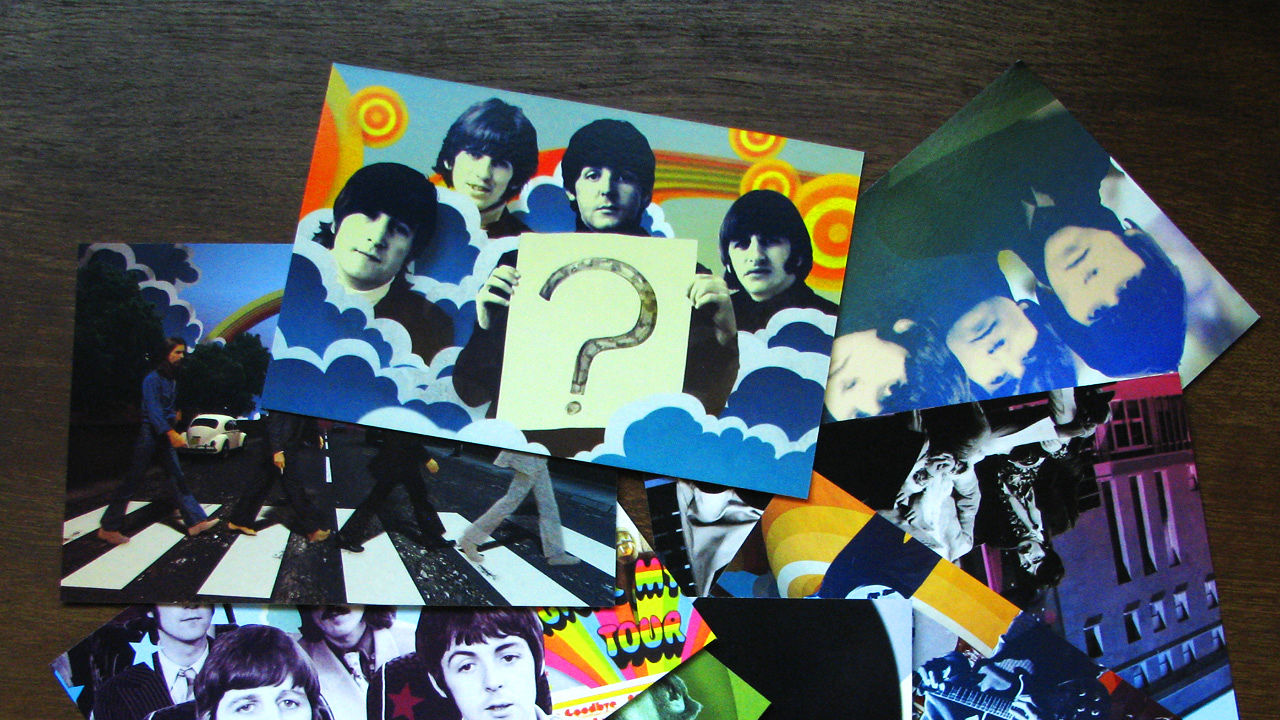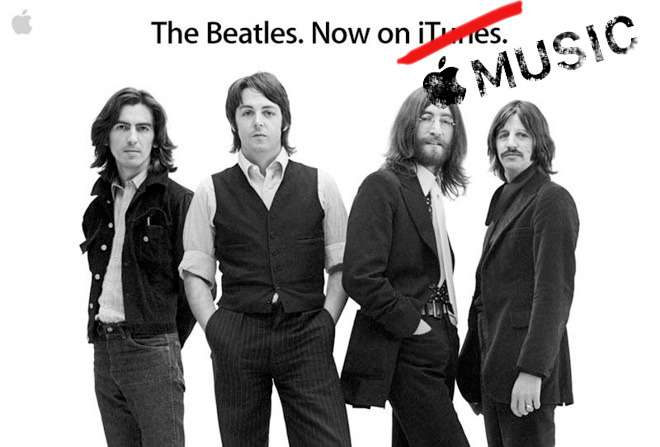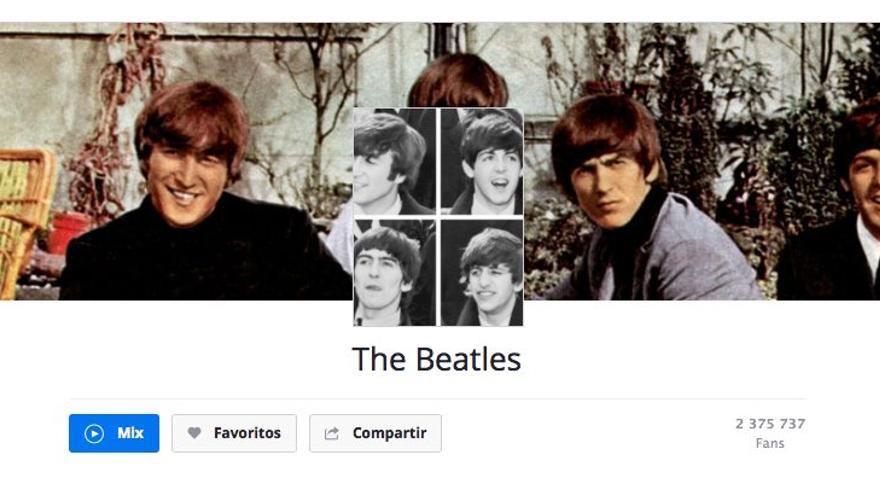What Beatles' Streaming Decision Means for Music Industry
Former Warner Bros. digital-music executive calls move a "giant validation of streaming"
By Steve Knopper
December 23, 2015

Insiders see the arrival of the Beatles catalog on Spotify and similar services as a major victory for the streaming movement. Michael Ochs Archives/Getty
Now that the Beatles have announced they'll activate their famous catalog on every on-demand streaming service, from Spotify to Apple Music, as of midnight on December 24th, the record business has one overwhelming reaction: What took them so long? "It's surprising they didn't do it this time last year," says Terry McBride, manager of Father John Misty, fun. and many others. "They probably have lost 10s of millions of dollars by not doing it. I'm quite sure there are many people, maybe in the millions, who are Beatles fans that have not been listening to the Beatles. That's a huge lost opportunity on so many levels."
Over the past few years, the record business has shifted its model from selling CDs and downloads to streaming — revenue from Spotify, YouTube and the others jumped from less than $600 million in 2012 to nearly $1.1 billion in 2014, according to the Recording Industry Association of America. Numerous artists, including Radiohead's Thom Yorke and Joanna Newsom, have complained about the low royalty payments they receive from streaming, and Taylor Swift and Adele have withheld their blockbuster albums from the services during the past two years. But the Beatles' presence gives the business what Jack Isquith, a Slacker Radio senior vice president and former Warner Bros. Records digital-music executive, calls a "giant validation of streaming.
"How do you look at this from a business perspective and say the other ups and downs over streaming — the Taylor Swift stuff, the Adele stuff — don't wind up as footnotes in history once you have these 13 [Beatles] albums right down the middle?" he continues. "This is an acknowledgment that streaming isn't just the future; it's the present."
The Beatles, who wouldn't comment for this story, have a history of waiting out new technology until they're absolutely certain it works for them. The compact disc came out in the early Eighties, but Beatles albums didn't arrive via CD until 1987; the iTunes Music Store opened in 2003, but the Beatles didn't sell downloads until making a 2010 deal with Apple. But their timing always seems right. "It is absolutely the perfect moment," says Alex Luke, a venture capitalist and former music executive for Apple as well as the Beatles' longtime label, EMI. "Digital-music services boom on Christmas Day and the week after, due to the new hardware under the Christmas tree — the iPads and phones and laptops. You have everyone hitting the digital services en masse. They picked the perfect window to maximize the return."

www.fastcompany.com
IT'S OFFICIAL: THE BEATLES COMING TO SPOTIFY, APPLE MUSIC, AND MORE
STARTING DECEMBER 24, THE FAB FOUR'S ENTIRE CATALOG WILL BE AVAILABLE ON ALL THE MAJOR STREAMING SERVICES.
BY JOHN PAUL TITLOW
December 23, 2015
Okay, it's finally safe to say it: The era of streaming music is here. If dwindling album sales and the slow-but-steady growth of music-subscription revenue weren't enough evidence, consider this new milestone: Beatles albums will be on the major streaming services from December 24.
Starting tomorrow, the original 13 albums released by The Beatles and a few post-1970 compilations will be available on Spotify, Apple Music, Google Play, Deezer, Rhapsody, and several other music subscription services in the United States and around the world.
"The Beatles needed to be on all streaming services if they were to reach out to a new generation of music fans," says Giles Martin, son of original Beatles producer Sir George Martin, who oversees the remastering of the Beatles' catalog for new formats. "Music streaming is the way most music lovers now enjoy their favorite songs."
For hardcore Beatles fans, the news won't exactly be life-altering. If you're anything like me, you've already purchased every Beatles album at least once in your lifetime—and you might even be blowing your disposable income collecting the newer vinyl reissues of their classic albums. But for music-service subscribers who double as Beatles fans, it's going to be much more convenient to listen to Sgt. Pepper and The White Album alongside all the other albums and playlists they've been digitally hoarding over the last few years.
For more casual streamers (especially the younger ones), the move ensures that one of history's most beloved bands isn't lost in the shuffle as music consumption shifts more toward the on-demand streaming model.

The news is much more exciting for the streaming companies themselves. The Beatles, who have earned a reputation for stubbornness when it comes to new technology and digital distribution, are obviously a massive part of modern popular culture, and their missing catalog is a glaring omission from any service designed to deliver the world's music to its subscribers.
"I agreed with Jeff Jones, the CEO of Apple Corps, and Lucien Grange at Universal that The Beatles needed to be on all streaming services if they were to reach out to a new generation of music fans," says Martin, who also works as the Sound Experience Leader at Sonos. "They are as relevant today as they were 40 years ago."

For companies like Spotify, Deezer, Apple, and the rest, the arrival of The Beatles means two important things: First, listening hours are likely about to increase as people around the world start to binge on Beatles classics. The band's catalog also makes these services more attractive to consumers and can only help drive subscriber numbers.
But perhaps more importantly, getting The Beatles on board gives the streaming model a renewed sense of legitimacy. With album sales dwindling, downloads tanking, and revenue from music subscriptions slowly (but steadily) growing, few doubt that streaming is the future, especially now that Apple—the company that effectively launched the market for paid downloads when it created iTunes—has jumped into the streaming game with Apple Music. But that hasn't stopped some from questioning the underlying economics of the streaming model. In a few cases, high-profile artists have pulled their catalogs from services like Spotify entirely.

After seven years of delay, The Beatles finally brought their music to the iTunes Store in 2010, reportedly after protracted legal, financial, and creative negotiations. Most notably, a longstanding trademark dispute between Apple (of Cupertino fame) and Apple Corps (founded by The Beatles in 1968) was finally settled in 2007, helping to thaw relations between the two companies.
The year before their iTunes debut, The Beatles released their entire remastered catalog on compact disc (and eventually vinyl) and even agreed to license their music for a special Beatles-branded edition of the then popular Rock Band video game. Just a few years earlier, some of the band's best-known songs were mashed up and remixed by Giles Martin for the Cirque du Soleil show and soundtrack titled Love. Clearly the Beatles empire was warming up to the idea of the band's music being heard—and even manipulated—in entirely new ways.

So what took so long for The Beatles to stream their music? Undoubtedly, one of the major stumbling blocks was coming up with the proper licensing deals for The Beatles catalog. This is always a crucial part of new digital distribution deals, and it tends to be especially contentious in the streaming space. The ins and outs of those deals are virtually never made public (on purpose). But it's safe to assume that each streaming service is forking over a significant sum of money to the rights holders of The Beatles songs.
There's also the issue of sound quality. The Beatles and their surviving family members and stakeholders are known to be extremely protective of the band's legacy and how their music is presented to the world. Only in recent years have the streaming services begun to embrace high-resolution audio (Deezer and Tidal especially) and move beyond the crunchiness of the MP3 era.

"Sound quality is everything we work for at Abbey Road," says Martin. "One of the reasons that it has taken this long for the Beatles to stream is that the quality is now there." Martin says he worked with the teams at the major streaming services to ensure that the band's music would be presented as true to the artists' intent as possible. The sound quality will obviously vary from service to service (and in some cases, from subscription tier to subscription tier), but the overall fidelity of streaming music libraries has come a long way since Rhapsody first arrived on the scene 14 years ago.

Tomorrow's release encompasses all of the original Beatles albums, from 1963's Please Please Me through 1970's Let It Be, the last record released before the band officially dissolved (although Abbey Road was technically recorded last). It will also include compilations like Past Masters volumes one and two, the red and blue greatest hits collections, and 1, the collection of number one hits released in 2000. Absent from the list are other post-1970 releases like The Beatles Anthology series or the Live at the BBC collection.
The albums will be available for streaming on Spotify, Apple Music, Deezer, Tidal, Microsoft Groove, Napster/Rhapsody, Slacker Radio, and Amazon Prime Music.


No hay comentarios:
Publicar un comentario